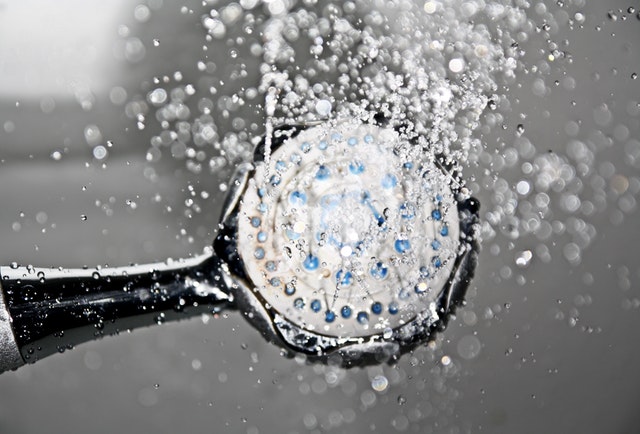Have you ever thought about installing a water tank for your hotel or including a backup water source for your hospitality business? Reusing water has now become central to a lot of businesses’ sustainability efforts and it has never been more significant than right now.
Hotels frequently do a lot to handle water intake. Low flow showers and taps or aerators, reduced flush toilets or no flush urinals, sensor detection and efficient housekeeping methods helps to lessen the total amount of water each guest, per area and per stay uses. But even with these steps many guests confess to consuming much more water throughout a hotel stay than they otherwise would had they have been at home and in certain water scarce areas, the gap in consumption between a hotel guest and the local residents can often be enormously immense, not that waterfront accommodation does not also benefit from water saving methods.
As a result, how could a resort water tank assist you and your hotel in attracting new clients and keeping a handle on the increasing cost of bills?
Advantages of rainwater tanks
Besides the obvious advantage in decreasing your clean water demand, obtaining the liberty to use water out any water restrictions or usage rules, and possibly saving money on your water bill, there’s also the extra advantage of utilising rainwater tanks for stormwater retention.
Numerous Councils now demand proof of additional stormwater retention prior to approving any new developments. With  increasing high-density regions in Sydney, there’s also larger impermeable surface area, so there’s not any dirt for the water to absorb into and contributes to high quantities of stormwater carrying sediments and contamination, downstream flooding and temporarily contaminated water bodies, whereas luxury accommodation in Tasmania would not suffer from high-density nearly as much.
increasing high-density regions in Sydney, there’s also larger impermeable surface area, so there’s not any dirt for the water to absorb into and contributes to high quantities of stormwater carrying sediments and contamination, downstream flooding and temporarily contaminated water bodies, whereas luxury accommodation in Tasmania would not suffer from high-density nearly as much.
With a large enough tank, there is the potential to gradually drain some of the water via a little opening, most effectively to a garden bed, to decrease the impacts of this stormwater whilst also having the remainder of the rainwater tank for hotel usage.
Reduce bills
Many restaurants and hotels have been actively responding to persistent drought conditions by changing things up a bit. Some hotels and restaurants have embraced a more water-conscious menu, and some have employed specific water-saving strategies. As these are noteworthy environmentally-friendly answers to drought conditions, there is another side effect to these responses: reduced utility bills. Rainwater tank prices are not even comparable to the money they would save. Maintaining your hotels cost prices and expenses as low as you can, is vital, therefore finding ways to reduce your expenses isn’t merely great for the environment, it is great for your bottom line as well.
Reduce your dependence on municipal water supply
In the home, being without water for even 24 hours may be problematic although not completely impossible to handle, particularly if you’re anticipating for a water shortage. When operating accommodation where countless guests rely on your water source can be catastrophic of the supply is compromised. By applying rainwater harvesting methods, such as water tank installation, or developing a backup water distribution system that’ll help you maintain the taps running can be significantly beneficial.
Environmentally friendly tourism
Implementing water-saving programs or integrating a resort water tank in your backup distribution programme, can grow to be a selling point for the hotel. As the requirement for eco-friendly tourism choices develops, keen-eyed clientele frequently favour environmentally friendly accommodation. An interruption in water distribution can be catastrophic to any industry, especially to the hospitality industry.
What is next?
Overall, it appears that the requirement for new houses and hotels to be sustainable is a fantastic beginning to endorse positive change, but there’s more work that has to be carried out. It’s evident that, whilst people may appreciate their rainwater tanks, if it be for ecological reasons or for the liberty to utilise water without any limitation, people who have set up a rainwater tank so as to add development approval are essentially disinterested or unmotivated, since they have not researched or put much consideration towards their rainwater tanks since that was their installers job.
Having said this, it’s also evident that the vast majority of people today would like to be environmentally friendly, especially when it does not cost them anything extra, and is comparatively simple for them to perform. The education and consciousness of tank owners is important in the achievement of fulfilling the objective of a water saving goal. The greater knowledge and awareness of their rainwater tank functions, the way to keep it, and comprehension of water quality, can help assuage concerns over using rainwater for laundry and hot water systems, and lead to better preserved tanks; finally raising the overall efficacy of this tank.
Rainwater tanks will fail unless they are preserved, but without schooling, maintenance is not likely to occur. It’s still a relevant and rewarding endeavour and should be utilised.


